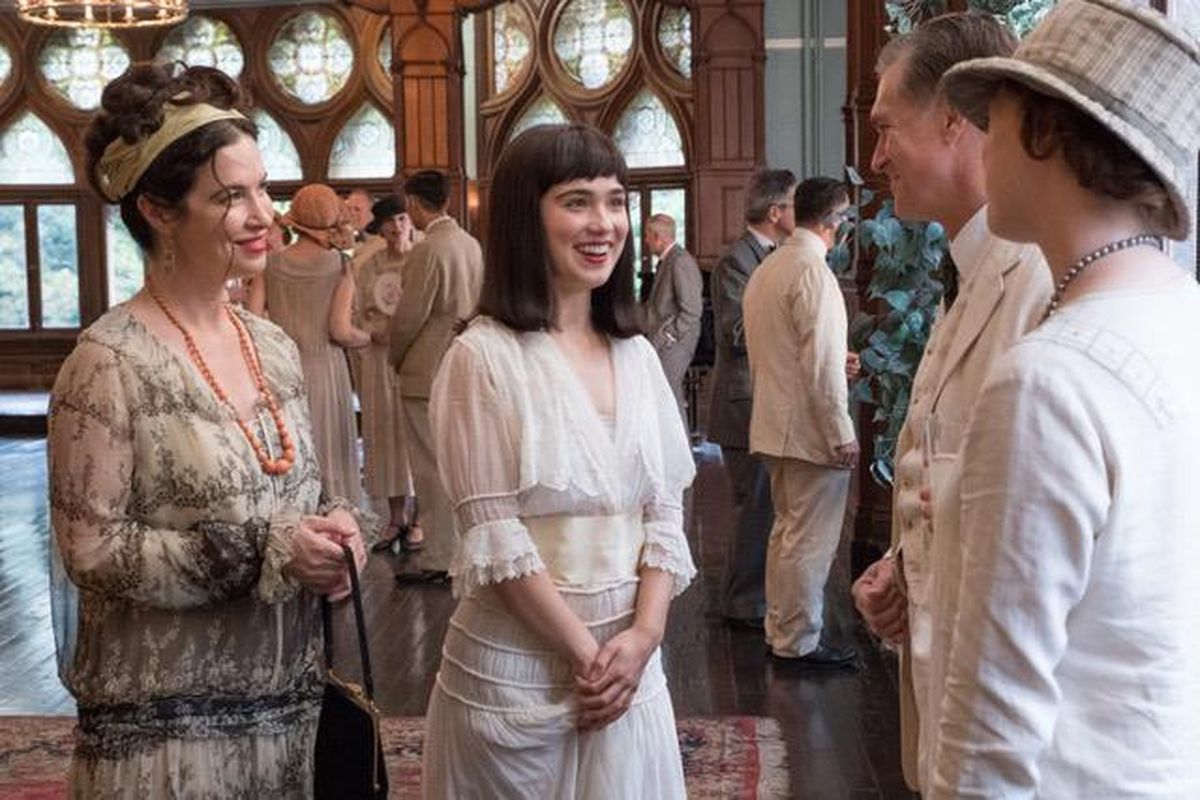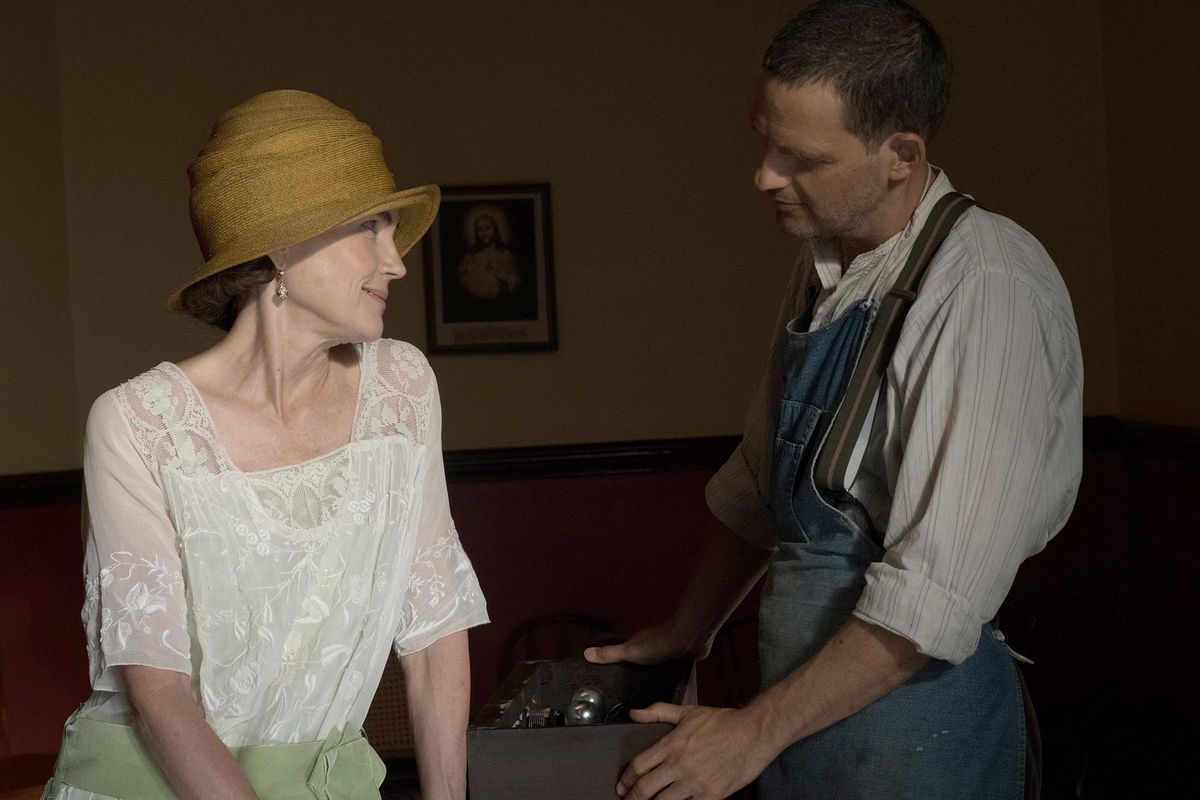Enjoy ‘The Chaperone’ for its strong female leads, but don’t expect much jazz
Victoria Hill, left, and Haley Lu Richardson in “The Chaperone,” a fictionalized period drama about an episode in the life of soon-to-be screen star Louise Brooks (Richardson), as she starts a new life in New York City. (Barry Wetcher / PBS Distribution)
Based on Laura Moriarty’s best-selling 2012 novel, “The Chaperone” fictionalizes an episode in the life of silent movie star Louise Brooks. Yet the intermittently effective drama that unfolds is as much about the contrast between the 1920s and 2019 as it is about the relationship between Brooks and her minder.
Norma (Elizabeth McGovern) is an unhappily married woman who volunteers to accompany 15-year-old Louise (Haley Lu Richardson), whom she meets at a recital, from sleepy Wichita to New York City, where the teen has been enrolled in a prestigious dance school. The rebellious Louise naturally butts heads with her elder as she sets eyes on her future. Norma, who was adopted from a New York home for “friendless girls,” faces her past as she searches for her birthparents. She, too, questions her future, unsure what to do about her unfaithful husband (Campbell Scott).
Richardson has turned in terrific performances in such recent films as “Columbus” and “Support the Girls,” which reflected two very different career options for young women today: the creative life of an architect in the former, and the service industry in the latter. Here she has the burden of playing a real-life figure whom some audiences may be familiar with. Although her physical resemblance doesn’t go much farther than Brooks’s iconic hairstyle, she does well in a role that could have resonated with her other recent performances but feels underwritten.
As the title indicates, “The Chaperone” is really about Norma and, thus, is more of a showcase for McGovern, a veteran actress well suited to play mentor. In such early roles as “Ordinary People,” McGovern was the very ingénue that Richardson is now. Their pairing makes this a look at two generations of actresses. That relationship, more than the movie’s ham-handed historical fiction, is what makes the movie watchable.
Unfortunately, the strong central performances don’t breathe enough life into the well-meaning but heavy-handed script by “Downton Abbey” creator Julian Fellowes, who worked with both McGovern and “Chaperone” director Michael Engler on the hit television series. Like many period pieces, the 1920s-set drama shoehorns modern sensibilities into a historical era, which leads to awkwardly knowing dialogue. When Norma tells her son that she’s concerned about the propriety of two women traveling alone to the big city, for instance, he encourages her that “This is 1922 – haven’t you heard? Things have changed. Women vote now.”
“The Chaperone” is essentially a coming-of-age movie, but not for the teenage Brooks. The film examines how the title character faces the coming of the modern age, overwhelmed by new mores that both delight and horrify her old-fashioned values. Yet despite the stirring performance at its heart, the movie is ultimately too restricted by its own dramatic conventions, and it only seldom comes to life.

